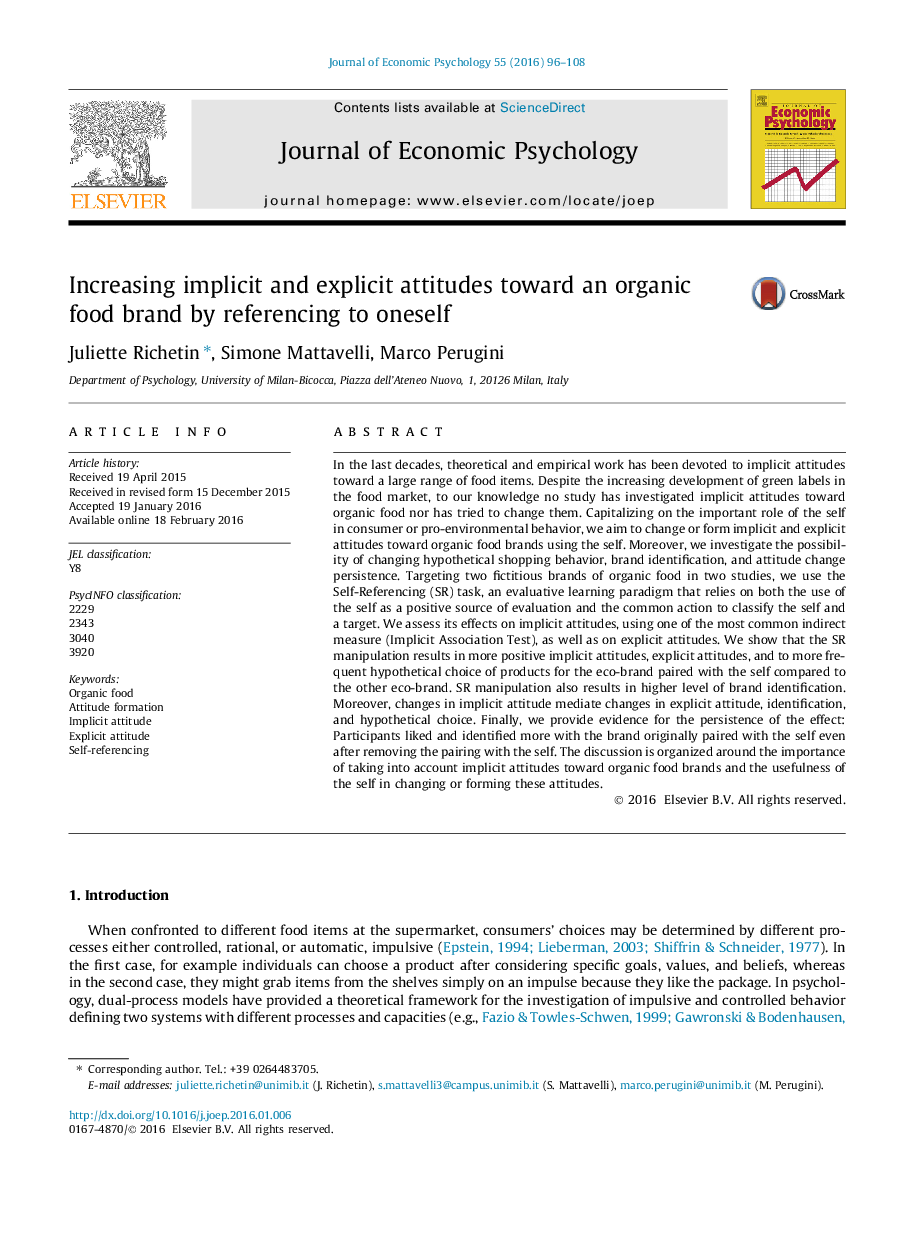| کد مقاله | کد نشریه | سال انتشار | مقاله انگلیسی | نسخه تمام متن |
|---|---|---|---|---|
| 884876 | 1471711 | 2016 | 13 صفحه PDF | دانلود رایگان |
• We focus on formation of implicit and explicit attitudes toward organic food brands.
• Capitalizing on the positivity of the self, we use the Self-Referencing (SR) task.
• SR manipulation results in more positive implicit and explicit attitudes.
• It also leads to higher brand identification and persists after removing the self.
• Implicit attitudes toward organic food brands need to be taking into account.
In the last decades, theoretical and empirical work has been devoted to implicit attitudes toward a large range of food items. Despite the increasing development of green labels in the food market, to our knowledge no study has investigated implicit attitudes toward organic food nor has tried to change them. Capitalizing on the important role of the self in consumer or pro-environmental behavior, we aim to change or form implicit and explicit attitudes toward organic food brands using the self. Moreover, we investigate the possibility of changing hypothetical shopping behavior, brand identification, and attitude change persistence. Targeting two fictitious brands of organic food in two studies, we use the Self-Referencing (SR) task, an evaluative learning paradigm that relies on both the use of the self as a positive source of evaluation and the common action to classify the self and a target. We assess its effects on implicit attitudes, using one of the most common indirect measure (Implicit Association Test), as well as on explicit attitudes. We show that the SR manipulation results in more positive implicit attitudes, explicit attitudes, and to more frequent hypothetical choice of products for the eco-brand paired with the self compared to the other eco-brand. SR manipulation also results in higher level of brand identification. Moreover, changes in implicit attitude mediate changes in explicit attitude, identification, and hypothetical choice. Finally, we provide evidence for the persistence of the effect: Participants liked and identified more with the brand originally paired with the self even after removing the pairing with the self. The discussion is organized around the importance of taking into account implicit attitudes toward organic food brands and the usefulness of the self in changing or forming these attitudes.
Journal: Journal of Economic Psychology - Volume 55, August 2016, Pages 96–108
